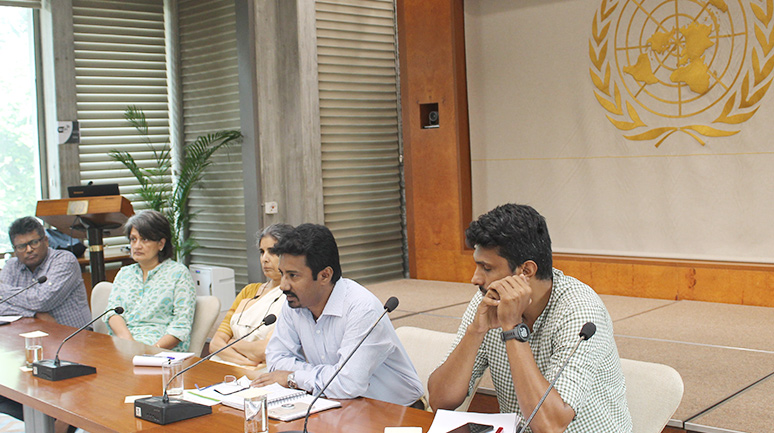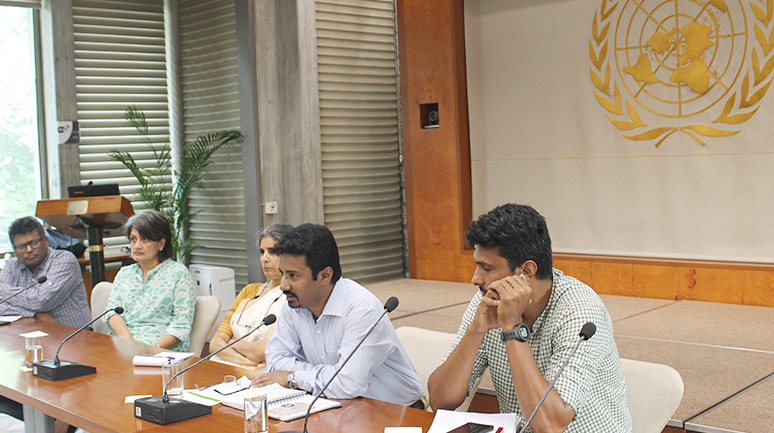
CHIRAG -“Creative Hub for Innovation & Reciprocal Research and Action for Gender Equality”

Background and Rationale of the Research
This project on “SUSTAINABLE FOOD SYSTEMS” has been titled as “CHIRAG: Creative Hub for Innovation & Reciprocal Research & Action for Gender Equality”, to capture its key conceptual and theoretical underpinnings. Grounded in the commitment to the coproduction of knowledge/up-scaling of local innovations as the pathway to sustainable food systems, we firmly believe in the equitable sharing and exchange of data and knowledge. While research often gathers data from rural communities, to be analysed by experts and used in decision-making at the policy level, this analysis and understanding is rarely shared and discussed with communities and community-level workers to collaboratively shape strategies on the ground. Drawing on our ongoing research as part of the ‘Transforming India's Green Revolution by Research and Empowerment for Sustainable food Supplies’ (TIGR2ESS) project, we hope to build channels for knowledge production and exchange from grassroots communities upwards, scaling out to blocks and districts, in order to ensure “SUSTAINABLE FOOD SYSTEMS”. CHIRAG is the lamp we hope will kick start this process in selected communities in Eastern India.
This project is an 18 months initiative undertaken by University of East Anglia, PRADAN, Kalinga Institute of Social sciences and Gram Vaani - to address food and nutrition security alongside gender equality in the states of Odisha and Bihar through systemic and sustainable up-scaling of small scale innovation on the ground.
Aim and Objectives
The aim of this collaborative process is to address food and nutrition in security in India, a problem facing a vast majority of women and children especially of rural and indigenous communities.
The three objectives are
- Build a proof of concept for upscaling community led knowledge and innovation.
- Ensure gender sensitive and reciprocal knowledge production and exchange.
- Conduct evidence based advocacy to ensure political uptake and institutional acceptance.
The 4Cs that will be followed in CHIRAG include:
- Community led platform for knowledge generation and exchange using the‘Interactive voice response system’ technology
- Creative Practice hub – video podcasts, creative writing, theatrical performances, photographic exhibitions and understanding the symbolisms of local festivals.
- Curriculum development for school, university and frontline workers.
- Constituency-level round tables to bring together and influence MPs, MLAs, policy makers & stakeholders from health, education, agriculture and local government ministries.
Methodology and Methods
The aim and objectives of the project will be achieved by working with communities especially women’s groups, youth groups and students to generate and share knowledge on sustainable food systems. In particular, production choices, technologies, diets and consumption practices and their relationship to health and nutrition outcomes. Content, generated using a range of tools and strategies will inform and will be shared at scale through an interactive, audio community media platform; supplemented by a mobile app for smart-phone users, to provide 24-hrs real-time response to community needs. Sustainability will be ensured through capacity building of educational institutions, government functionaries and wider public at multiple scale - Local, regional, national and international.
A three-phased approach will be followed to implement the project strategy –
1st phase:
- Need analysis, concept seeding and co-creation of strategies.
- Capacity building
- Folk artists strategies
2nd phase:
- Content generation
- Process support and editing
- Innovative field activities
3rd phase:
- Digital portal launch
- Exchange across stakeholders
- Exhibition and sharing of impact
Project Highlights:
CHIRAG Launch event:
A technical meeting and stakeholder consultation on impact acceleration through analysis, advocacy and action was held on Nov 1, 2019. A detailed report of the event can be found here.

